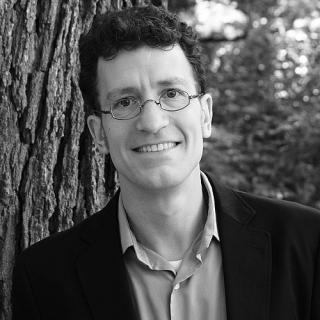
Great Plains residents and boosters have often welcomed and promoted population growth in the region. And yet the ideas of British pastor Thomas Malthus -- who famously argued at the turn of the 19th century that population growth would eventually overwhelm natural resources -- have resonated to a surprising degree on the Great Plains.
Derek Hoff, associate professor of history at Kansas State University, will address that apparent contradiction in "A Prophet without Honor? Malthus on the Great Plains," at the February Paul A. Olson Seminar in Great Plains Studies at the University of Nebraska-Lincoln. The lecture is 3:30 p.m. Feb. 26 at the Great Plains Art Museum, 1155 Q St. The event is free and open to the public.
This lecture offers a first draft of the history of population thought in the region.
"It is easy to assume that ideas about population growth have always been settled on the Great Plains: The more people, the better," Hoff said. "In the 19th century, land company officials, railroad promoters and local boosters competed to attract new immigrants and settlers and dismiss the realities of the climate. And in the 20th century, much of the region underwent population decline, leading to new strategies to promote growth."
Yet, Hoff said, the Great Plains is a great place to study the numerous contentious population issues that have persisted in the United States since its birth.
"Under the region's quintessentially American boosterism, a deep thread of population pessimism on the Plains has wondered whether the region, with its obvious natural resource constraints, in fact demonstrates British pastor Thomas Malthus' theory that 'The power of population is indefinitely greater than the power in the earth to produce subsistence for man.'"
Hoff is the author of "The State and the Stork: The Population Debate and Policy Making in U.S. History," and, with John Fliter, "Fighting Foreclosure: The Blaisdell Case, the Contract Clause, and the Great Depression."
The lecture will be live streamed at https://connect.unl.edu/gpc-olson and the recording will be posted on the Center for Great Plains Studies website, http://www.unl.edu/plains.
— Katie Nieland, Great Plains Studies